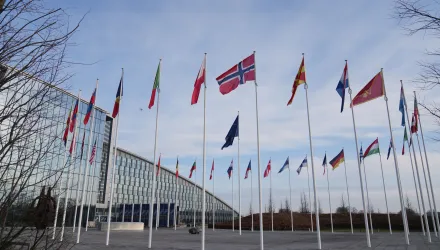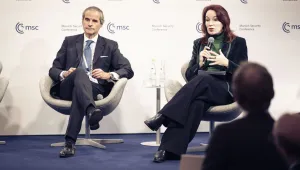By Dominic Contreras
The 2014 Nuclear Security Summit brought together dozens of world leaders focused on preventing nuclear terrorism. So, what was accomplished and what work remains to be done? One way of assessing this is to look at joint statements (also known as “gift baskets”) issued at the Summit in which participants pledged their support to nuclear security initiatives like enhancing radiological security or strengthening nuclear security implementation. These statements present opportunities for countries to endorse specific actions to strengthen nuclear security.
Of the Summit’s 53 participants, the United States signed the most joint statements (16 – abstaining only from the Joint Statement on a Comprehensive Approach to Nuclear Security and the Joint Statement on Countries Free of HEU), with the second highest number of signatures coming from the host of the 2012 Nuclear Security Summit - South Korea (11). Other countries that signed a majority of the statements included Georgia, Japan, Kazakhstan, the Netherlands, and the United Kingdom (9 each).
On the other end of the spectrum are the Summit participants who committed to very few or no joint statements. Russia, which possesses the most nuclear material of any country, signed only one statement - the Joint Statement on the Contributions of the Global Initiative to Combat Nuclear Terrorism (GICNT) to Enhancing Nuclear Security. Pakistan, which is the location of the world’s most deadly terrorist threat and the fastest growing stockpile of nuclear material, also only signed one joint statement – The Joint Statement on Nuclear Security Training and Support Centres/Centres of Excellence. While China, which also has a significant stockpile of nuclear material, did not sign on to any joint statements.
Other notable non-signers include India (0), Saudi Arabia (0), and Nigeria (0). Like Pakistan, India is expanding its nuclear stockpile, faces a significant terrorist threat (although smaller than what Pakistan faces), and has been secretive about how it secures its nuclear materials and facilities. Saudi Arabia and Nigeria have both expressed interest in developing nuclear power.
Even though the 2014 Nuclear Security Summit is now over, the threat of nuclear terrorism remains. Policy makers now departing The Hague should not rest on their laurels. They should, instead, begin the work of encouraging broader participation to joint statements that strengthen nuclear security.
VIEW: List of 2014 NSS Joint Statement signatories (by statement)
VIEW: List of 2014 NSS Joint Statement commitments (by country)



